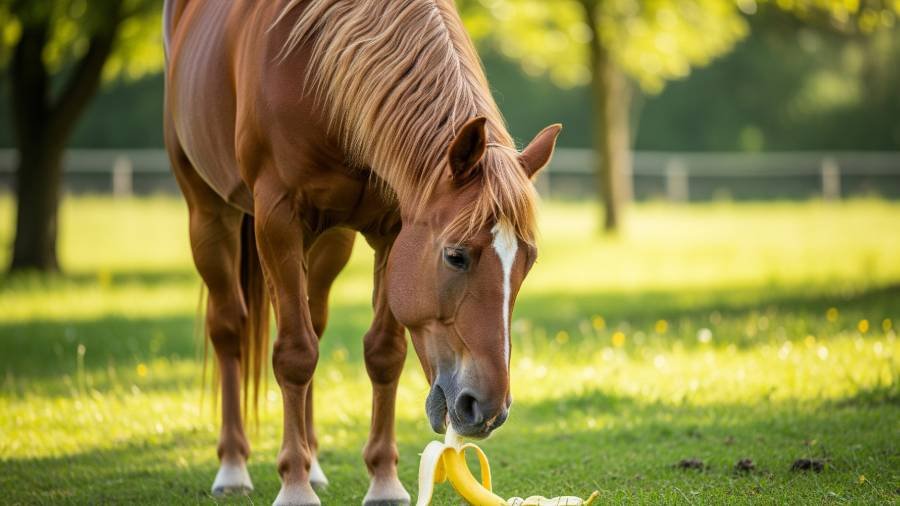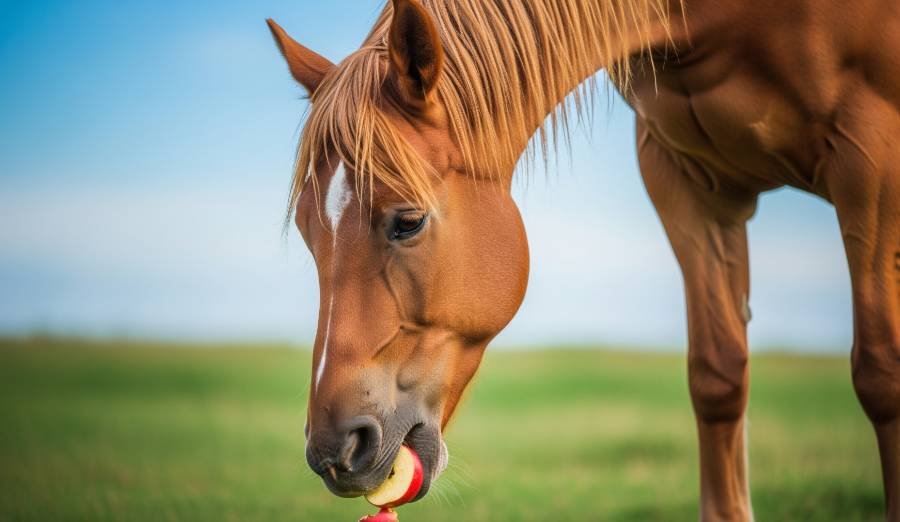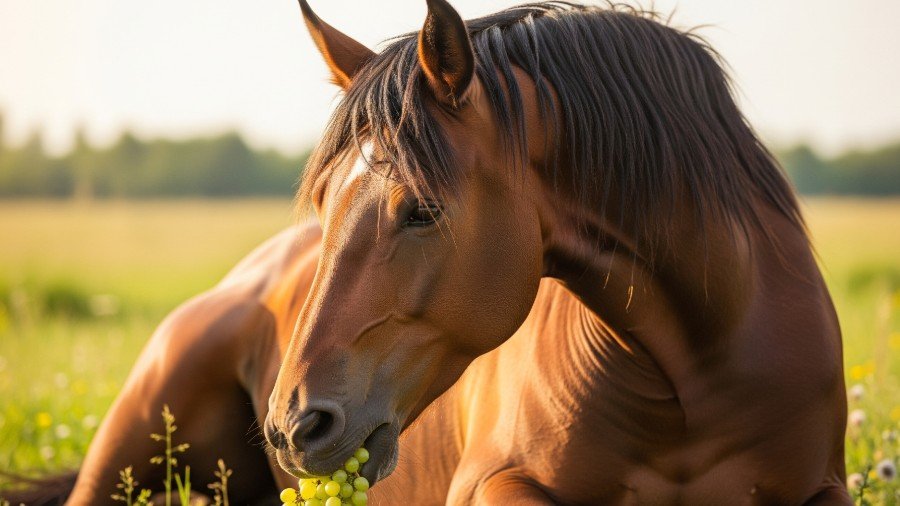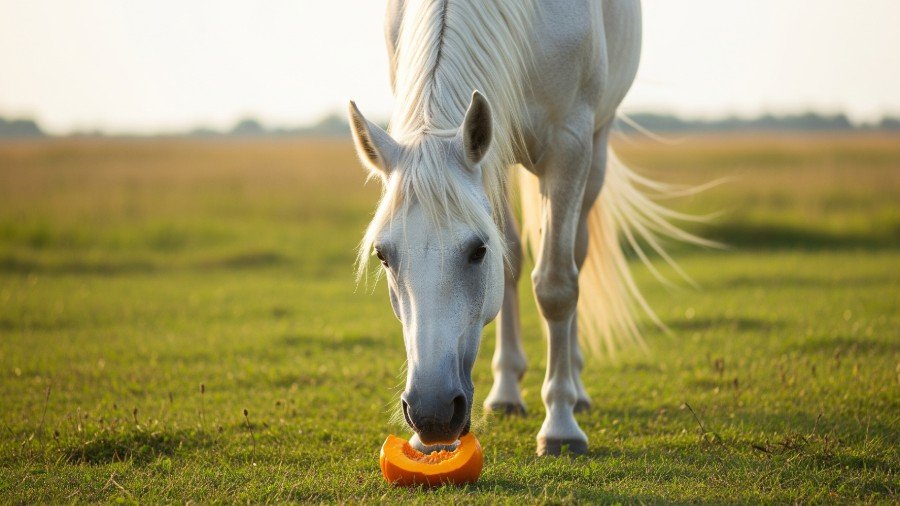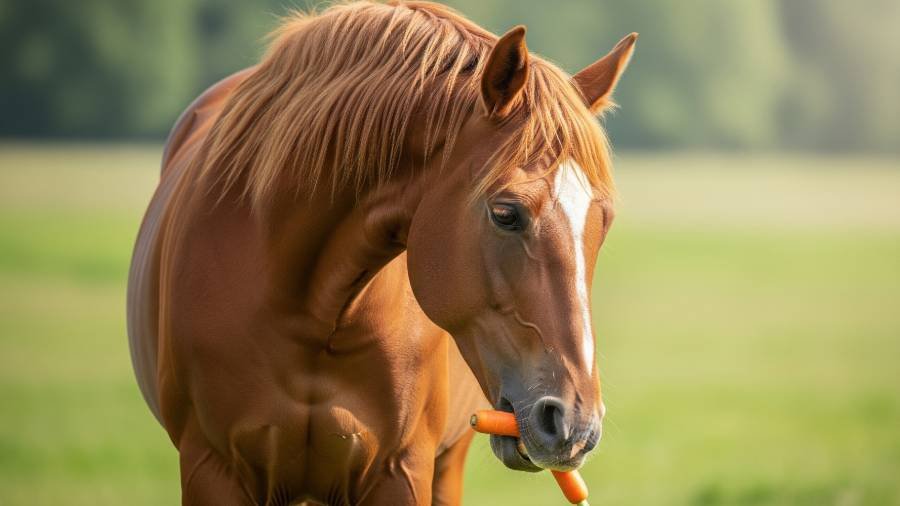Yes, horses can eat watermelon as a safe and refreshing treat for horses in moderation, making it a favorite among equine friends.
As part of a balanced diet, watermelon’s high water content benefits hydration, but it should complement a horse’s primary forage and grain intake.
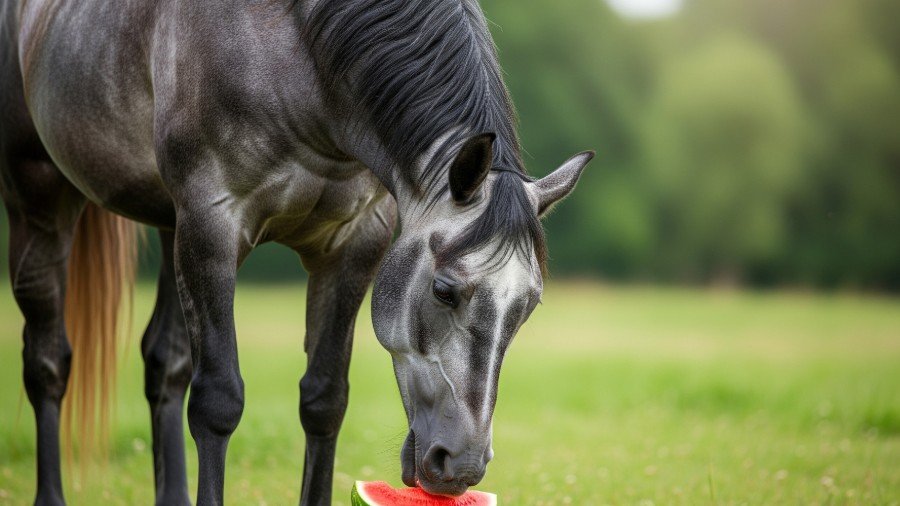
Potential Benefits of Watermelon for Horses
When horses in moderation enjoy watermelon, it offers several advantages that make it good for horses:
- High Water Content: Watermelon hydrates horses, especially during hot weather or after exercise.
- Vitamins and Minerals: It provides vitamins A and C, plus potassium, supporting the immune system and bone health.
- Amino Acid Boost: Contains citrulline, which increases blood flow and may aid muscle recovery.
- Natural Sweetness: Horses love the juicy taste, making it an appealing treat.
- Low Calorie: Its light nature suits horses needing a guilt-free snack.
These benefits are valuable when feed watermelon to horses in controlled amounts. For more on safe fruits, explore can horses eat apples.
Risks and Dangers of Watermelon for Horses
While watermelon is safe for most horses, some risks should be noted:
- Choking Hazard: Large pieces or watermelon rind can pose a risk if a horse swallows without chewing.
- Sugar Content: Eating watermelon in large quantity may cause digestive upset or issues in horses with metabolic disorders.
- Rind Difficulty: Though horses can eat watermelon rind, tough or unripe pieces may be hard to digest.
- Pesticide Residue: Non-organic watermelon may carry chemicals, requiring thorough washing.
- Overhydration: Excessive intake can dilute electrolytes, though this is rare.
- Nutritional Imbalance: Over-reliance on watermelon can lack essential nutrients from a balanced diet.
How to Safely Feed Watermelon to Horses
To ensure watermelon is a safe treat, follow these guidelines:
- Wash Thoroughly: Rinse watermelon under water to remove pesticides, even if organic, before feeding your horse.
- Remove Rind if Needed: Cut away tough rind or serve only the flesh, though horses can eat watermelon rind when soft.
- Cut into Small Amounts: Slice into manageable chunks to avoid choking hazard and aid digestion.
- Feed in Moderation: Offer a small portion (e.g., a few cubes or a slice) once or twice a week, keeping treats under 10% of a horse’s daily intake.
- Avoid Additives: Serve plain watermelon without sugar or salt, which can harm a horse’s digestive system.
- Monitor Reactions: Introduce watermelon gradually and watch for colic, diarrhea, or allergies over 24–48 hours. Consult a vet if issues arise.
- Consult a Vet: Seek veterinary advice before feeding watermelon, especially for horses with metabolic issues or dental problems.
Signs of Watermelon-Related Issues
If a horse eats watermelon excessively or reacts poorly, look for:
- Colic, diarrhea, or reduced appetite
- Excessive gas or bloating from digestive upset
- Lethargy or unusual behavior
- Difficulty swallowing or choking (from large pieces)
- Skin irritation (rare allergic signs)
If these signs appear, stop feeding watermelon and contact a veterinarian immediately. Severe digestive issues require urgent care.
Expert Opinions
Veterinary sources, such as the Equine Veterinary Journal, confirm that horses can eat watermelon safely in moderation, praising its hydration and vitamin content. Experts recommend removing tough rind and limiting intake to avoid sugar-related risks. For more on safe produce, check can horses eat carrots or can horses eat bananas.
Additional Considerations
- Health Conditions: Horses with insulin resistance or laminitis should avoid watermelon due to sugar. Consult a vet first.
- Young Horses: Foals may need softer, smaller pieces, as advised by a vet.
- Horse Preferences: Some equine friends love watermelon’s juiciness, while others may not. If uninterested, try alternatives like those in can horses eat strawberries.
- Organic vs. Non-Organic: Organic watermelon may reduce pesticide risk, but all should be washed.
- Hydration Aid: Watermelon’s water content is ideal for hot days, complementing regular water intake.
Safe Treat Alternatives
Instead of watermelon, consider these safe-for-horses treats, tailored to enhance a horse’s diet and offering internal linking opportunities:
- Apples: Small, cored apple slices provide vitamins. Learn more in our guide on can horses eat apples.
- Carrots: Sliced carrots offer crunch and nutrients. Check our guide on can horses eat carrots.
- Pumpkin: Cooked, plain pumpkin supports digestion. Explore our article on do horses eat pumpkins.
- Celery: Thin celery sticks hydrate and delight. See our guide on can horses eat celery.
Introduce new treats gradually, monitor for reactions, and consult a vet if unsure about safety.
Horses can eat watermelon as a safe, hydrating treat for horses, offering benefits like vitamins and minerals when fed in moderation.
However, risks such as choking hazard, sugar overload, or rind difficulty require cutting into small amounts and portion control. Horses with health issues or young ones should avoid watermelon unless approved by a vet, and a balanced diet should remain the focus.
Always consult a veterinarian before introducing watermelon or other fruits. For more on equine nutrition, explore can horses eat pears, can horses eat grapes, or what do horses eat.
For additional questions about what horses can eat or nutrition, feel free to ask!
